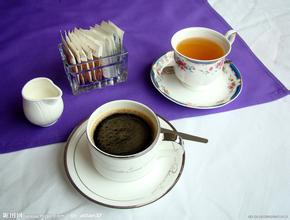Flavor and taste characteristics of Brazilian Santos coffee beans an introduction to the manor production area described by Sidamo
Brazilian coffee was introduced from French Guiana in 1729. It is true that intensive farming and changing treatment methods and improving the technical content of cultivation can improve the quality of coffee to some extent, but the natural conditions of Brazil cannot in any way be compared with those that produce some of the world's top coffees. because although Brazil has better soil conditions and a humid climate, it is not high above sea level. However, there are also some world-famous items, Brazil Bourbon Santos is one of them. The Brazilian Bourbon Santos has no particular advantages, but there are no obvious drawbacks. This coffee has a mild and smooth taste, low acidity, moderate mellow and a touch of sweetness. All these soft flavors are mixed together, and to distinguish them one by one is a test of taste buds, which is why many Bourbon Santos fans love this kind of coffee. It is precisely because they are so gentle and ordinary that bourbon Santos is suitable for ordinary baking and brewing in a maximum way. It is the best raw material for making espresso and all kinds of fancy coffee. Brazilian coffee culture-Bourbon Santos-mild taste bud test
Speaking of which, Bourbon Santos is not as bold and expressive as Brazilians, it is mild, sour and lively, and has a refreshing and harmonious flavor, it is one of the most popular coffee in the world. Among the Brazilian coffee, only Sandoz coffee is the most valued by the world.
Although people all over the world love coffee, no other country combines coffee with daily life and work as closely as Brazil. Brazilians sip coffee almost all day.
Old bourbon coffee is grown on some estates in the Serrado district of Minas Greais state in southeastern Brazil. Old varieties of bourbon coffee grown on these estates, such as Capin Branco and Vista Allegre, are also sold on the market. Although they come from the same area, these coffees have their own characteristics. Capingblanco coffee is smoother than Vesta Allegre coffee, while Vesta Allegre coffee is strong and black, both of which have lower acidity. However, like all Brazilian coffee, they are most suitable for drinking when they are fresh and tender, because the older they are, the more acidic they are. These coffee growers have organized themselves into the Brazilian Special Coffee Association (the Speciality Coffee Association of Brazil). Unlike in the past, Brazil's economy is less dependent on coffee, which accounts for only 8% to 10% of GDP. Before World War II, Brazil accounted for 50% or more of the world's coffee production, and now it is close to 30%. But the country's impact on the world's coffee, especially on coffee prices, is significant. For example, two frost disasters in 1994 caused a sharp rise in global coffee prices.
Since the introduction of coffee trees from French Guiana (Guyana) in 1720, coffee production has gradually become a science. Before 1990, the Brazilian government carried out strict monitoring of the coffee industry, with both strict intervention and price protection measures, and the state has been implementing minimum price protection measures for farmers, resulting in coffee overproduction. Before World War II, the remaining stock reached 78 million bags, which had to be burned by fire or thrown into the water to destroy.
Since the opening of the free market in 1990, the original Brazilian Coffee Authority (IBC) has been replaced by the National Economic Association, the country's non-investment administrative body, which pursues a policy of non-intervention and allows producers to negotiate directly with exporters. The business activities of exporters are supervised by the government legislation, and the relevant departments register legitimate exporters.

Important Notice :
前街咖啡 FrontStreet Coffee has moved to new addredd:
FrontStreet Coffee Address: 315,Donghua East Road,GuangZhou
Tel:020 38364473
- Prev

Introduction to flavor description of Salvadoran coffee bean with taste treatment method
Salvadoran coffee ranks side by side with Mexico and Guatemala as the producers of Asa and Merdo, and is fighting for the top one or two places in China and the United States with other countries. The highlands of origin are large coffee beans of all sizes, which are fragrant and mild in taste. Like Guatemala and Costa Rica, coffee in El Salvador is graded according to altitude, and the higher the altitude, the better the coffee
- Next

Introduction of Panamanian Poket Butterfly Rose Summer Coffee with different Flavor description
Coffee varieties: Geisha, Catuai, Caturra planting altitude: 1400-1700m annual rainfall: 3200 mm average temperature: about 14-25 ℃ soil types: volcanic soil classification standard: SHB treatment method: washing method: manual harvest related certification: Nram A raw bean specification: 18 mesh harvest year: 2015 cup test results: Apple, Potato, Maple syrup, Le
Related
- Detailed explanation of Jadeite planting Land in Panamanian Jadeite Manor introduction to the grading system of Jadeite competitive bidding, Red bid, Green bid and Rose Summer
- Story of Coffee planting in Brenka region of Costa Rica Stonehenge Manor anaerobic heavy honey treatment of flavor mouth
- What's on the barrel of Blue Mountain Coffee beans?
- Can American coffee also pull flowers? How to use hot American style to pull out a good-looking pattern?
- Can you make a cold extract with coffee beans? What is the right proportion for cold-extracted coffee formula?
- Indonesian PWN Gold Mandrine Coffee Origin Features Flavor How to Chong? Mandolin coffee is American.
- A brief introduction to the flavor characteristics of Brazilian yellow bourbon coffee beans
- What is the effect of different water quality on the flavor of cold-extracted coffee? What kind of water is best for brewing coffee?
- Why do you think of Rose Summer whenever you mention Panamanian coffee?
- Introduction to the characteristics of authentic blue mountain coffee bean producing areas? What is the CIB Coffee Authority in Jamaica?

